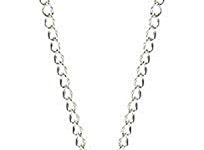
Many in the media have been complacent, incoherent, and/or compromised when it comes to the coverage (or lack thereof) of the Sunday Ticket trial, its verdict, and its impact. Beyond the question of whether more than $14 billion will be paid to more than 2.4 million members of the nationwide class is the reality of the situation.
The reality is of the situation that, for 30 years, the NFL has been screwing consumers.
The league might not like to see it put that way, but it’s exactly what has happened. The NFL required Sunday Ticket to be overpriced in order to protect the billions it receives from the networks that make games available through local, over-the-air TV affiliates on Sunday afternoons.
There are two aspects of the group of consumers who have been affected by those practices. Represented in the class are those who were forced to pay more than they should have paid for Sunday Ticket, thanks to the anticompetitive behavior reflected by the jury’s verdict. Not represented are the people who wanted Sunday Ticket but who couldn’t afford it.
They weren’t damaged in the legal sense because they didn’t buy Sunday Ticket. But if it was dramatically cheaper, or if a per-team option was available, they would have bought it.
The trial’s evidence included a document showing that ESPN wanted to charge only $70 for the entire Sunday Ticket package, and that it wanted to let consumers buy the games one team at a time. The NFL said no.
The only people not impacted by the Sunday Ticket price gouging are those who would have never bought Sunday Ticket for any price, presumably because they live in the market where their favorite team plays. Millions don’t. To watch the games they wanted to see on Sunday afternoons, either they had to pay a surcharge aimed at protecting CBS and Fox’s ratings or they just said, “Screw it, I’ll watch the games on my local channels.”
The NFL could still win the case and avoid paying more than $14 billion. Even if it does, the question becomes…
..






